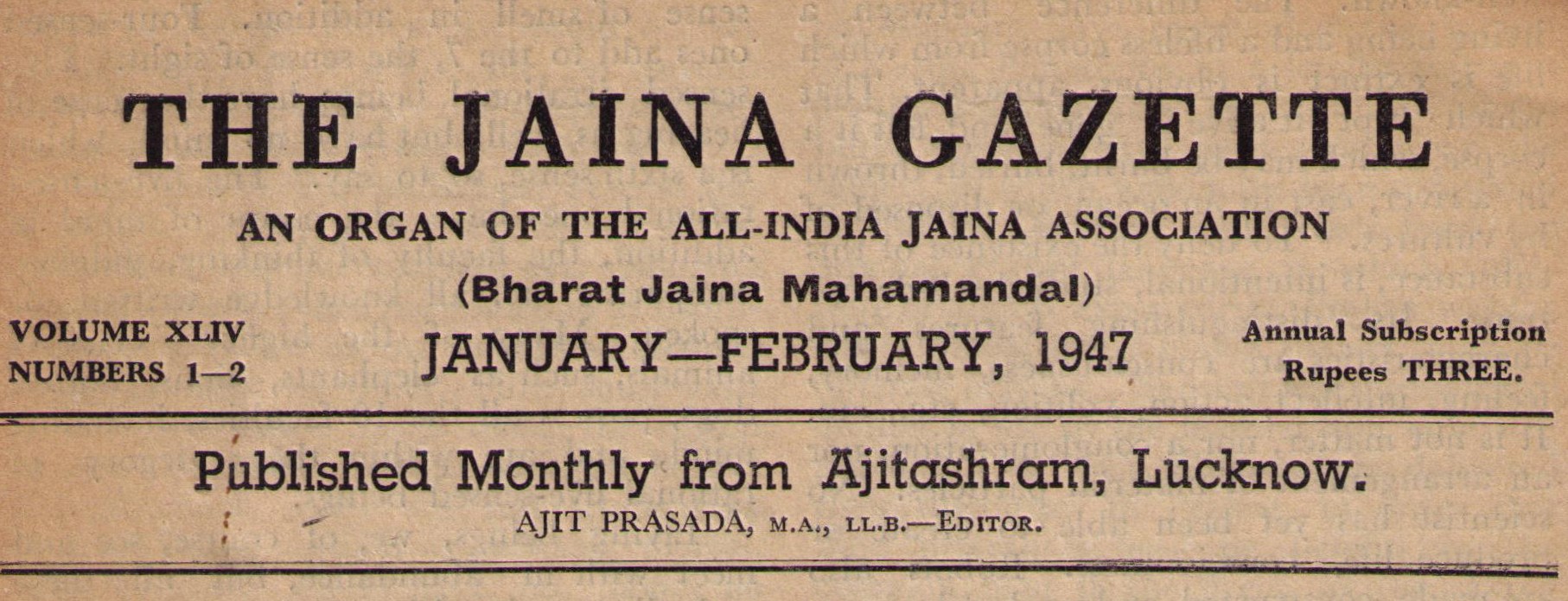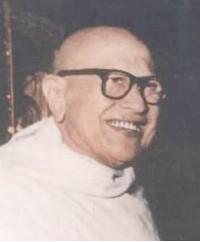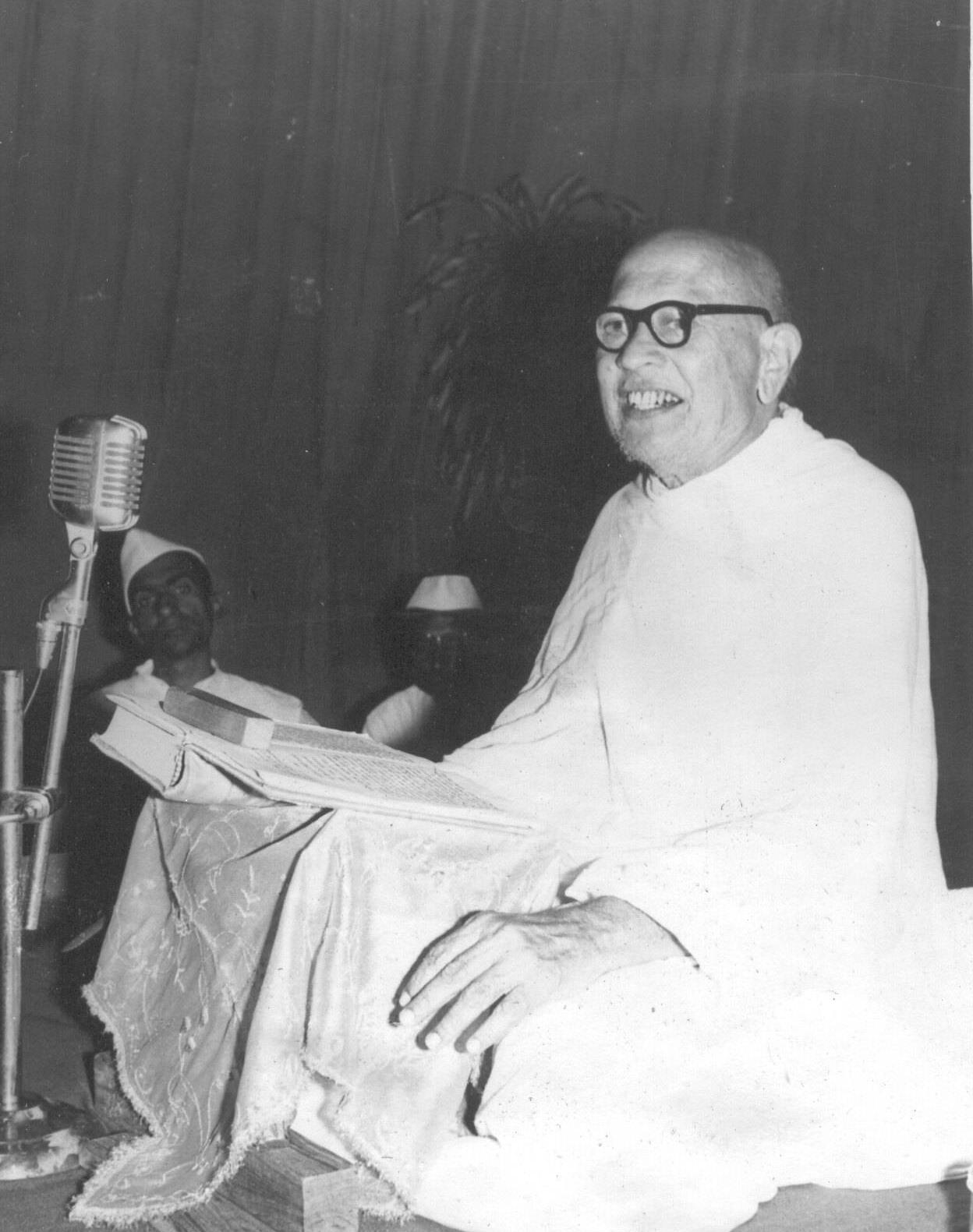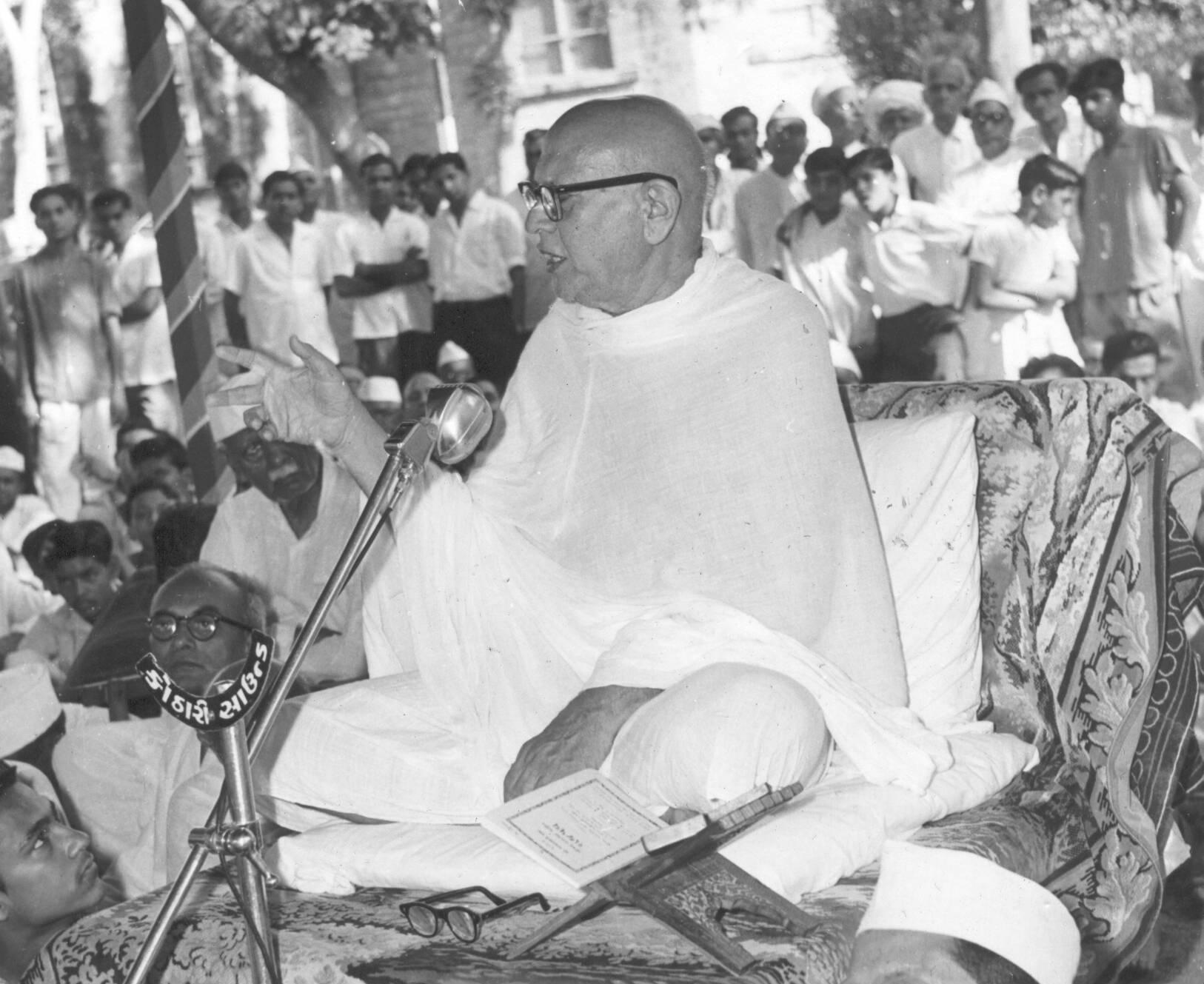
The article of a lecture by Kanji Swami was first published in January-February 1947 in The Jaina Gazette (Volume XLIV, Number 1-2, pp. 3-5)
Kanji Swami Maharaj Speaks (II)
A right believer.
A devotee of arihant feels, experiences no pain, no trouble. Nothing is too difficult for him. There is no obstacle in his path. He is out of the jungle. He will not stop in his progress until he attains the status of an arihant. This is what is meant by being a servant of the non-attached. This is what is understood by the word Jain.
Truth, reality, knowledge is that which stands the test of examination, deep thought, and close severe reasoning. Shrimad Rajchandra says so. The same is the teaching of Java-dhavala. A mere scriptural text is not enough.
There is no limit to achievement of temporal objects. A millionaire wants to be a multi-millionaire. A king aspires to become a king of kings, an emperor. There is similarly no limit to achievement of the self. Transgressing all limitations of time and endeavour, a seeker strives onward until he attains the perfect, unalloyed pure self, the paramatmapada, Parmeshwaratva, god-hood. He pursues his aim ceaselessly, and sacrifices everything, his life even, and life after life, to attain his goal. Such is the right-believer, the samyak drishti, who secures liberation before long.
Ceaseless thinking,
concentrated contemplation, one-pointed meditation is the sine-qua-non for obtaining realization, a glimpse of the reality, atma-darshan. The idea to fix a time-limit for attaining self-realization is deceptive. One may not attain it in several lives. One should be prepared to sacrifice innumerable lives for the purpose. It all depends upon the strength of your determination, your effort, your purusharth. If the will, the determination, the desire, the urge for it is powerful, one may attain realization in one or two lives; and otherwise one may not get rid of the whirl of transmigrations in lives beyond reckoning. If the conviction is irresistible, one sacrifices his all, gives up all temporal attachments renounces all contact with the not-self, and is fairly well advanced on the road to self-absorption.
(We have in Jain scriptures the example of Bharat Chakravarti attaining omniscience in a moment after divesting all clothing and plucking off his hair. On the other hand is the example of his brother Bahu-Bali not attaining omniscience even after months of austerities and continued contemplation. - Editor of The Jaina Gazette).
Complete Independence.
Jainism proclaims sampurna swatantrata, complete independance, puma swaraj. Jainism posits six substances as comprising the universe, life or soul, no-life or matter, dharma or kinetic force, adharma or the fulcrum of rest, akash or space, and kal or time. Each of these is independent of the other. Each of them exists, has ever existed and shall ever exist, independently of another, in the three worlds, in all times, present, past, and future. One does not have any effect or influence upon another in any manner or form. Therefore atma, the self, the soul, the jiva, the substance that lives, should ever look upon itself as independent; as the treasure-house of infinite attributes. It is within it-self. It is not outside. The treasure is inexhaustible. Therefore it must realise and enjoy within itself. This should be its attitude, and its endeavour in order to attain the goal of perfection, omniscience, eternal everlasting peace, joy, might. The embodied soul of course from a practical point of view advances by degrees. He gives up all evil inclinations, all evil thoughts, all evil words, all evil acts. He harbours good helpful thoughts, has sweet, encouraging words for others, assists others in becoming happy, does good to everybody, speaks well to everybody, and does good to all. Gradually he advances forwards, and retires into itself, leaves off all concern with the outer world, with all that is beside his-self, and is ever and anon, for all time self-absorbed, immersed deep in the joy of self-realization, which is ineffable, unutterable, unspeakable, inexpressible. It is the summum bonum.
Labour Lost.
People involved in wordly affairs, foam and fret, strive and struggle, and waste their breath and energies in unprofitable and harmful ways and directions, to no useful purpose. The self, the atma, the I, the life-principle, the energising and vitalising factor is all-knowing, all-powerful, centre of all Joy, undiluted happiness ever-lasting. Its divine attributes, and godly virtues are however clouded, and suppressed by temporal temptations, fleeting fancies, insatiable desires, and ever-recurring wants.
The embodied soul, the imprisoned monarch of all, the sovereign Lord, has only to realise his own greatness, his own invincible might, to wean himself from seeming pleasures, to retire unto himself, and therein find what is called the kingdom of heaven, liberation, swarg, moksha, the summum bonum, the acme of achievement. Mere outward garb of a sadhu, a show of renunciation, is of no consequence, if the inner self is not cleansed and purified.
The real renunciation is an absence of the feeling of possessiveness, a disappearance of the idea that I am responsible for what happens around me, that I am the doer of actions, the thinker of thoughts, the creator or destroyer of things. One must become unattached, centred and circumferenced in one-self. This sort of concentration, is possible, will be attained by constant practice, by degrees, from short intervals to long durations, until one begins to feel oneself unaffected by external circumstances, hunger and thirst, heat or cold, pain or pleasure, praise or abuse, kindness or cruelty, worship or ill-treatment. That is the trait, the character, the renunciation or asceticism of a true sannyasin, sadhu, yogi, or muni.
The first step towards self-realisation is the ascertainment of the essentials; the essential nature of the atma - what it is, and what it is not. In attaining this, there is no pain, no expenditure of money, no journey to a foreign country, no supplication to anybody, no loss of energy, no fear, no trouble. It is not sinful, it occasions no disease, it does not lead to repeated births and deaths, it does not entail the service of anybody. Why should a sensible person not follow the path. Therefore study the scriptures. Otherwise, good actions, like worship, uttering praises, visiting temples, abstemiousness, austerities, discipline, aversion to sense-indulgence, contentment do not prove fully fruitful. Study, discussion, discourses of teachers, and self-contemplation are all helpful.
The teacher, the guru, the master should be above any selfish motive, above any prejudice, above any partiality, above passion, above desire of any sort, indifferent to praise or insult. The teachings and practices of such a master should be implicitly followed, resolutely, without shriking or doubting. The consequential good will be obvious, self-evident, tangible.
 Kanji Swami
Kanji Swami

